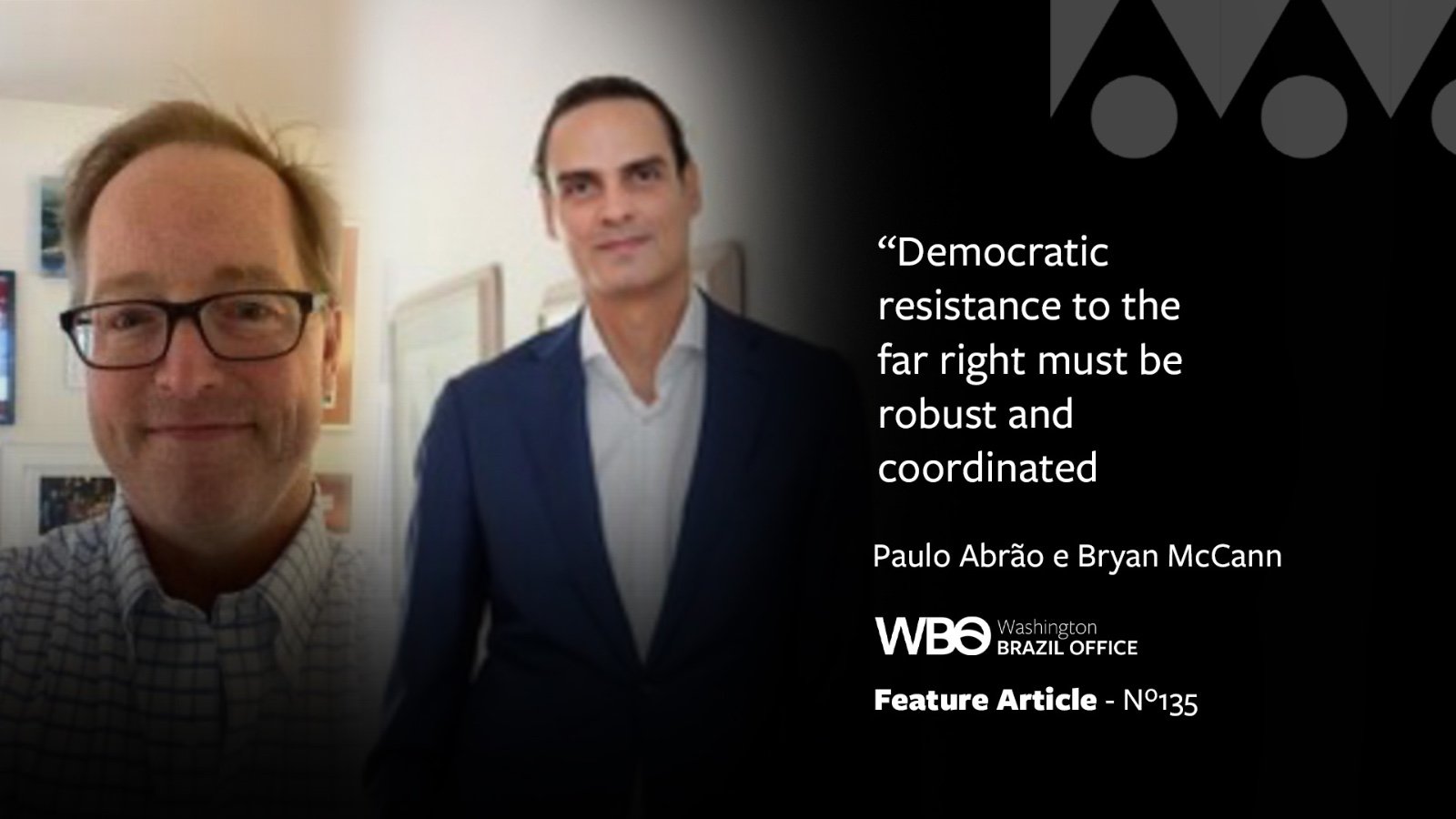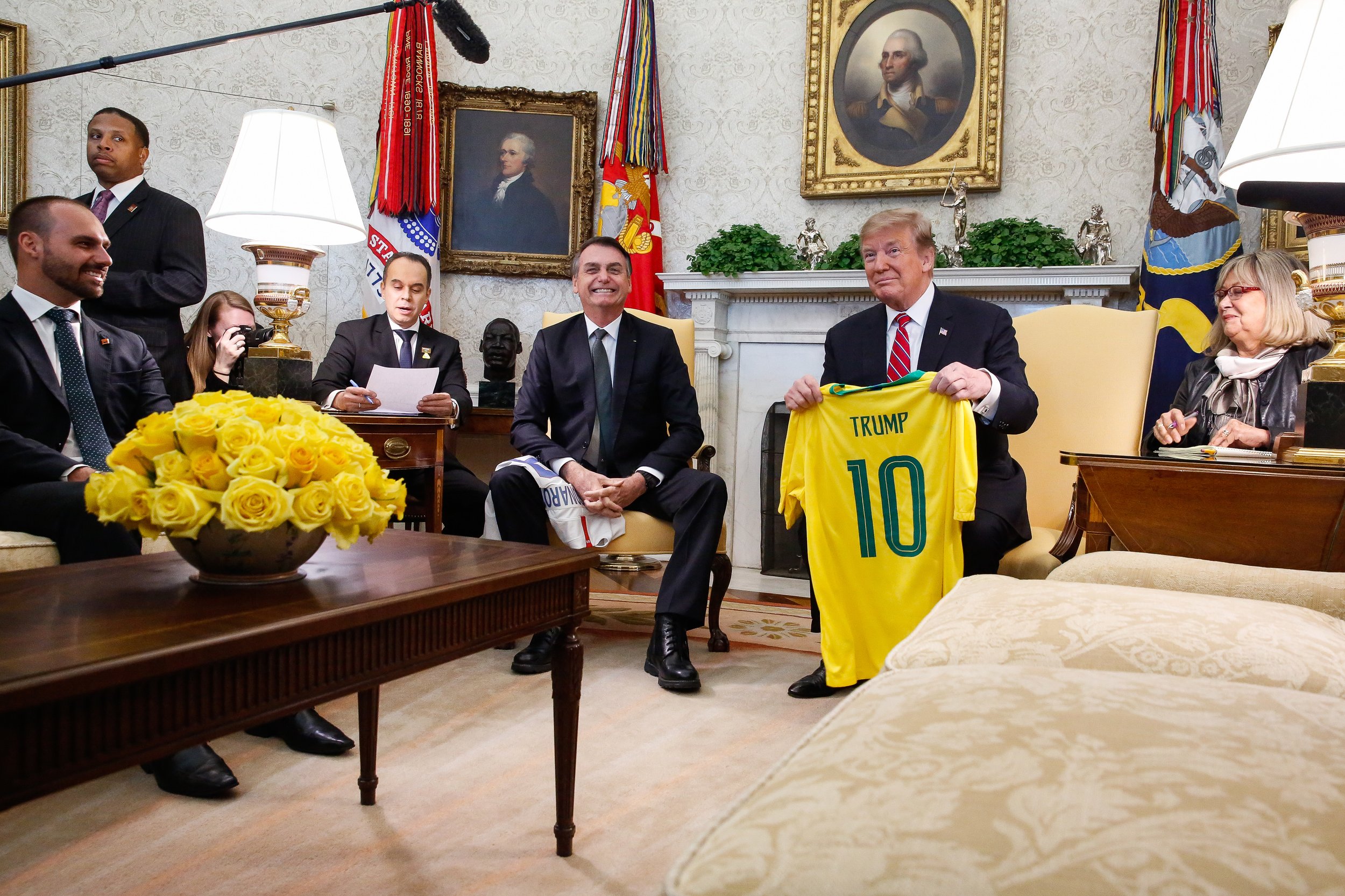The Danger of the Far Right and the Need to Confront It
Paulo Abrão, executive director of the WBO and Bryan McCann, professor history at Georgetown University. This article was written for issue 135 of the WBO weekly newsletter, published on September 20, 2024. To subscribe to the newsletter and receive it for free, enter your email in the field provided.
On September 24, the Washington Brazil Office (WBO) and Georgetown University will hold an event to discuss the current expressions of the far right and the challenges that this sector poses. The debate will feature the participation of two eminent Brazilian colleagues who are dedicated to researching the topic in Brazil – Flávia Pellegrino, from Pacto Pela Democracia, and Guilherme Casarões, professor of International Relations at the Fundação Getúlio Vargas/São Paulo – in addition to Professor Elcior Santana from Georgetown and Democratic Congresswoman Kamlager-Dove. This will undoubtedly be a great opportunity for us to reflect on the moment we are going through. We would like to take this opportunity to present some important topics that should mark this debate, which everyone is invited to follow, either in person or via the online broadcast on the WBO YouTube channel.
First, it is important to state clearly that the far right is a political force that is growing all over the world. This growth is occurring in the gaps of democracy’s shortcomings and imperfections. It is a growth led by new leaders – populist, demagogic and truculent leaders – who manipulate the frustrations that their voters show they have regarding democracy to offer them the response of completely destroying everything that gives meaning and support to these same democracies as we know them. In other words, the far right is proposing a scam: it gains support from those who want a better democracy, but in the future it delivers no democracy at all. Anyone who has any doubts about this need only look at the failed coup attempts that took place in the United States on January 6, 2021, and in Brazil on January 8, 2023, when two major figures– the American Donald Trump and the Brazilian Jair Bolsonaro – attacked with all their might the electoral system of their respective countries, as well as the institutions responsible for safeguarding this democratic heritage.
This is a very well-coordinated movement internationally. It is also a movement that has robust funding and the communication support of some of the world's biggest businessmen. Social media has become the territory in which this unstoppable advance against democracies is expanding and deepening. From these solid support points, orchestrated attacks are conducted on the checks and balances of democracy: the judicial bodies, Congress, the press, academic institutions, human rights organizations, opposition political parties, the electoral systems, and the bodies that protect it. In the dilapidation of democracy, this extremist political sector demands for itself total freedom to act. It is a sector that distorts and subverts individual freedoms in order to entrench in power personalistic, narcissistic, and violent politicians who, once in office, begin to deny their opponents all the rights and freedoms they demanded for themselves.
It is also a sector that promotes and incites political violence, whether by irresponsibly defending the expansion of the use of firearms in society, or by praising past regimes of force, or by evoking a militaristic ideal and by suppressing those considered too weak and sensitive for a new society marked by the vulgar use of force. In this sense, the rights of minorities begin to be attacked. The misogyny that oppresses begins to be redeemed in the discourse of the extreme right in the name of a threatened masculinity. The LGBTQIA+ community is treated as a threat to the family and to a supposed normality closely linked to a limited conception of religiosity.
We have witnessed increasingly structured exchanges between ideologues and operators in this sector. Brazil and the United States are perhaps at the forefront of this cooperation. Brazilian extremists have been strengthening ties with businesspeople and congressional members in this sector in the United States. The work of these operators seems to be moving towards a structured internationalization of the movement, based not only on contacts, the exchange of experiences and declarations of mutual sympathy, but also on the exchange of increasingly aligned strategies and the creation of a tolerant global environment conducive to these coordinated attacks.
Democratic resistance to this movement must be equally robust and coordinated. By holding this meeting in Washington, we hope to make a valuable contribution to all those who follow, study, debate, and formulate strategies to deal with the far right in the world in order to preserve, promote, and defend democracy.


